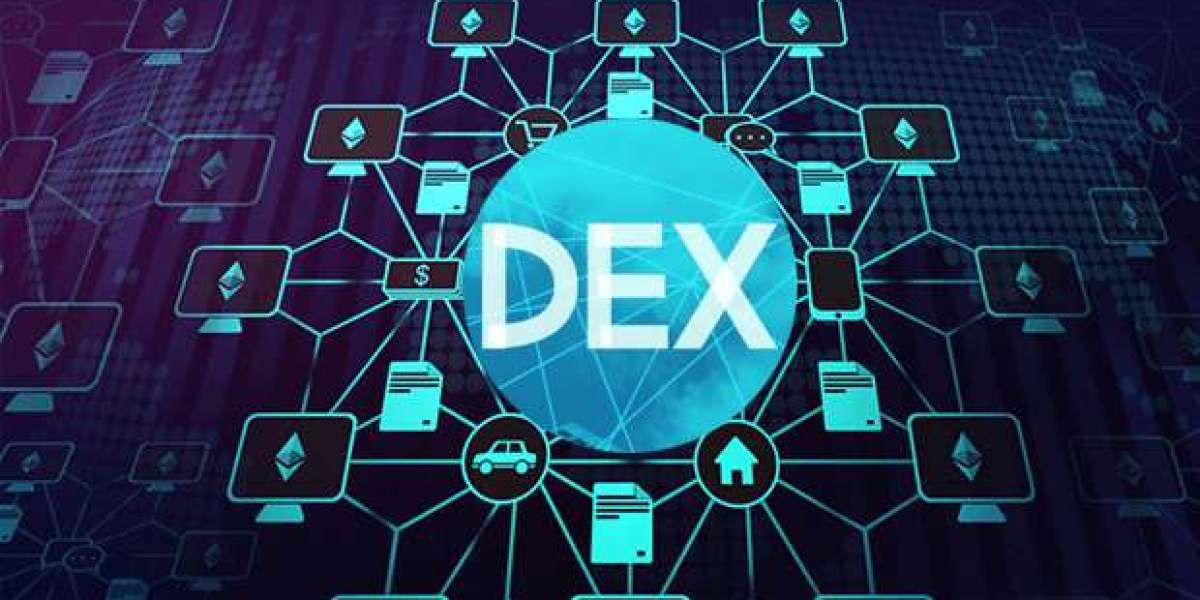When I first heard about Jack Dorsey's plans to build a decentralized exchange (DEX) for Bitcoin, I was immediately intrigued and inspired. As someone deeply embedded in the world of cryptocurrency and blockchain technology, I recognize the transformative potential of decentralized systems. Jack Dorsey, a visionary in the tech industry, has consistently championed innovative solutions that challenge the status quo. His latest venture into the decentralized exchange space promises to revolutionize the way we trade and interact with Bitcoin.
The concept of decentralization is at the heart of blockchain technology. It embodies the principles of transparency, security, and autonomy. Traditional exchanges, while convenient, often come with significant drawbacks such as high fees, security vulnerabilities, and regulatory constraints. By contrast, a decentralized exchange operates without intermediaries, giving users full control over their assets and trades. This aligns perfectly with the foundational ethos of Bitcoin, which was created to offer a decentralized alternative to the traditional financial system.
In the current landscape, the need for a robust and user-friendly decentralized exchange is more pressing than ever. As we witness growing interest and participation in the cryptocurrency market, the limitations of centralized exchanges become increasingly apparent. Issues such as hacking incidents, market manipulation, and lack of privacy underscore the urgent need for a more secure and transparent trading platform.
Jack Dorsey's initiative to create a Bitcoin-centric DEX is not just a step forward; it's a giant leap towards a more decentralized and equitable financial ecosystem. With his extensive experience and commitment to open-source principles, Dorsey is uniquely positioned to drive this ambitious project. His vision for a decentralized exchange is poised to empower users, enhance security, and promote financial inclusivity on a global scale.
As we delve deeper into this topic, we'll explore the potential benefits, technical challenges, and the broader implications of this groundbreaking project. Stay tuned as we unpack the future of decentralized trading and what it means for the world of Bitcoin and beyond.
The Vision Behind Decentralization
Jack Dorsey's commitment to decentralization is well-known. His company, Square, has been a strong advocate for Bitcoin, and his personal endorsement of cryptocurrency has helped legitimize it in the eyes of the mainstream. But why is decentralization so important?
Decentralization refers to the distribution of power and control away from a central authority. In the context of cryptocurrency, it means that transactions and data are not controlled by a single entity but are instead verified by a network of nodes. This structure enhances security, transparency, and trust. By removing intermediaries, users gain full control over their assets, reducing the risk of fraud and censorship.
Dorsey's vision for a decentralized exchange aligns perfectly with these principles. Traditional exchanges, while convenient, come with significant drawbacks such as high fees, security vulnerabilities, and regulatory constraints. A decentralized exchange addresses these issues by allowing peer-to-peer trading without a central authority, ensuring that users retain full ownership of their assets.
The Need for Decentralized Exchange Development Services
In the rapidly evolving landscape of cryptocurrency, the demand for Decentralized Exchange Development Services is on the rise. Traditional centralized exchanges, despite their popularity, have been plagued by issues such as hacking incidents, market manipulation, and regulatory challenges. These problems highlight the urgent need for a more secure and transparent trading platform.
Decentralized exchanges (DEXs) offer a compelling alternative. By leveraging blockchain technology, DEXs enable users to trade directly with one another without the need for intermediaries. This not only reduces the risk of hacks but also ensures greater transparency and fairness in the trading process.
Jack Dorsey's initiative to create a Bitcoin-centric DEX is a response to these pressing needs. By focusing on Bitcoin, the most widely recognized and trusted cryptocurrency, Dorsey aims to build a platform that prioritizes security, transparency, and user empowerment. His extensive experience in the tech industry and his commitment to open-source principles make him uniquely qualified to lead this ambitious project.
Benefits of a Decentralized Bitcoin Exchange
The benefits of a decentralized Bitcoin exchange are manifold. Firstly, it enhances security by eliminating the central point of failure that exists in traditional exchanges. In a decentralized system, users maintain control of their private keys, significantly reducing the risk of hacking and theft.
Secondly, a decentralized exchange promotes transparency. All transactions are recorded on the blockchain, providing a public ledger that can be audited by anyone. This level of transparency is unmatched by centralized exchanges, where trading activities are often opaque and susceptible to manipulation.
Moreover, a decentralized exchange fosters financial inclusivity. By removing barriers to entry, it allows individuals from all over the world to participate in the global financial system. This is particularly important for people in regions with limited access to traditional banking services.
Finally, a decentralized Bitcoin exchange aligns with the original vision of cryptocurrency as a tool for financial freedom and autonomy. It empowers users to trade without the need for intermediaries, ensuring that they have full control over their assets.
Technical Challenges and Solutions
While the benefits of a decentralized exchange are clear, the technical challenges should not be underestimated. Building a robust and user-friendly DEX requires addressing issues such as liquidity, scalability, and user experience.
Liquidity is a critical factor for any exchange. Without sufficient liquidity, users may struggle to find counterparties for their trades, leading to slippage and unfavorable prices. To address this, Dorsey's team could implement innovative liquidity solutions such as automated market makers (AMMs) and liquidity pools.
Scalability is another major challenge. As the number of users and transactions increases, the platform must be able to handle the load without compromising performance. Layer 2 solutions and off-chain transactions could be explored to enhance scalability and ensure a seamless user experience.
User experience is paramount for the success of any platform. A decentralized exchange must be intuitive and easy to use, even for those who are new to cryptocurrency. Dorsey's team could leverage user-centric design principles and provide comprehensive educational resources to help users navigate the platform with ease.
Real-World Impact and Case Studies
The potential impact of Jack Dorsey's decentralized exchange extends beyond the cryptocurrency community. It could serve as a catalyst for broader adoption of decentralized technologies and reshape the financial landscape.
For instance, consider the example of Uniswap, a popular decentralized exchange built on the Ethereum blockchain. Since its launch, Uniswap has facilitated billions of dollars in trading volume and has become a key player in the DeFi (decentralized finance) ecosystem. Its success demonstrates the viability and potential of decentralized exchanges.
Dorsey's Bitcoin-centric DEX could achieve similar success by providing a secure and transparent platform for Bitcoin trading. By leveraging his extensive network and industry expertise, Dorsey could attract a diverse user base and drive mainstream adoption of decentralized exchange development services.
The Future of Decentralized Exchange Development Services
As the cryptocurrency market continues to evolve, the demand for decentralized exchange development services is expected to grow. Innovations in blockchain technology and increased awareness of the benefits of decentralization are driving this trend.
Jack Dorsey's project represents a significant milestone in the development of decentralized exchanges. By focusing on Bitcoin, the most established and trusted cryptocurrency, Dorsey aims to create a platform that sets new standards for security, transparency, and user empowerment.
The success of this project could inspire other tech leaders to explore decentralized exchange development services and contribute to the growth of the decentralized finance ecosystem. As more people recognize the advantages of decentralized exchanges, we could see a shift away from traditional financial systems towards a more open and inclusive financial future.
Conclusion
Jack Dorsey's plans to build a decentralized exchange for Bitcoin are a testament to his visionary leadership and commitment to decentralization. By addressing the limitations of traditional exchanges, this project has the potential to revolutionize the way we trade and interact with Bitcoin.
As we look forward to the launch of this ambitious project, it's important to stay informed and engaged with the latest developments in decentralized exchange development services. The future of finance is being shaped by pioneers like Jack Dorsey, and we all have a role to play in supporting and advocating for a more decentralized and equitable financial system.









